Mozambique: Foreign Minister leaves for FOCAC ministerial meeting of coordinators, 4th China-Africa ...
Nyusi calls for increased economic cooperation with Cuba
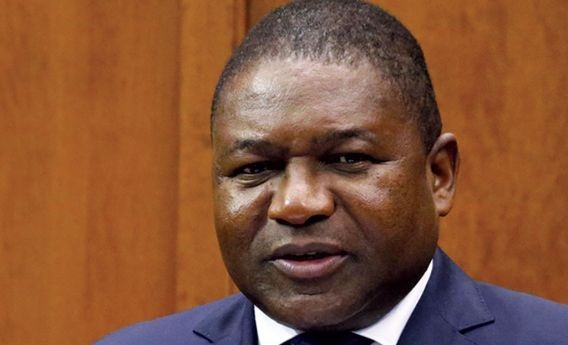
Mozambican President Filipe Nyusi on Saturday described the longstanding political and diplomatic relations between Mozambique and Cuba as “excellent”, but insisted that it was now time to advance in economic cooperation.
He was speaking in Havana at a meeting with members of African diplomatic missions stationed in the Cuban capital.
“Our great objective is to strengthen and reaffirm our relations of friendship and cooperation”, he declared. Recalling that the last time a Mozambican President had visited Cuba was in 2008, Nyusi said “this interval justified my visit so that, once again, we can relive and rekindle the warmth of our relations with this country”.
“Historically, Cuba and Mozambique have been linked at very difficult moments, moments of liberation”, he added.
When Mozambique achieved its independence in 1975, after a ten year war of liberation against Portuguese colonial rule, it faced a critical shortage of skilled staff. Portuguese settlers fled en masse, leaving a void in many professions.
“Teachers ran away, doctors ran away, judges and civil servants ran away”, said Nyusi. Under these difficult circumstances, Cuba stepped in, responded to a request from Mozambique’s first President, Samora Machel, and provided the training Mozambicans needed to fill the places left by the fleeing Portuguese.
“Thousands of young Mozambicans came here to study”, continued Nyusi. “Some of them are now ministers or deputy ministers, and many are in the business and public sectors. Our relationship with this country is natural. The values of sovereignty were always respected, and Cuba stood beside us at all times”.
In order to value and capitalise on this relationship, the President argued, the two countries should advance to more visible economic cooperation, so that “always united, we can struggle for prosperity and development”.
Turning to the situation in Mozambique, Nyusi blamed the recent conflict on the refusal of the losers in the 2014 general elections to accept their defeat, and obliquely criticised others in Africa who refuse to bow to the decisions of the electorate.
“We have had difficult moments because of that culture that we sometimes want to promote on our continent. When people lose elections, they don’t know how to say ‘congratulations!’, and instead they create internal disturbances which in no way help our democracy”, he said.
Nyusi was clearly referring to Mozambique’s main opposition party, the rebel movement Renamo, which has lost all five general elections held since Mozambican became a pluralist democracy, but has never accepted defeat. Instead Renamo took up arms again and throughout 2016 waged a low level insurrection, mainly in the central provinces. Currently a truce is in effect, but Renamo has not yet disarmed and its illegal militia still exists.
But despite the conflict, Mozambique never ground to a halt. “At no moment did the country cease functioning”, said Nyusi. “The institutions are all working – the executive, the parliament, the judiciary, all of them are functioning”.
Nyusi told the diplomats that Mozambique has faced economic difficulties because of the fall in the world market price of some of its key exports, the international financial crisis, the depreciation of the Mozambican currency, the metical, natural disasters, and what he delicately called internal problems linked to debt management – a reference to the over two billion dollars of loans from European banks taken out in 2013 and 2014 by security-related companies, and illegally guaranteed by the government headed by Nyusi’s predecessor, Armando Guebuza.
These factors, plus the conflict with Renamo meant that economic growth slowed down. But this year he was optimistic that growth will pick up again. “Last year, growth stopped at 3.6 per cent, but this year everything indicates that growth will rise to 4.5 per cent or more”, he said.
On Friday night, Nyusi met with the Mozambican community in Cuba, consisting mainly of students. He challenged them not to lose sight of patriotic values, and to keep themselves permanently informed about events in Mozambique.
He expressed satisfaction at reports that the Mozambican students are well behaved and study hard. “That’s important”, he said. “You should know how to live through a period of change”.
But a message from the students complained of the low value of the government scholarships they receive, and the fact that the money arrives late. They asked for an increase in the scholarships.
“Mozambique remains the country which pays low scholarships and, as if that were not enough, the sums are paid with delays”, the message stressed.
Nyusi said he understood the hardships the students face, but blamed it on the suspension of aid to Mozambique by many of its foreign partners.
“Because of the measures taken by the International Monetary Fund (IMF), we don’t have support”, he added. “What we are doing is guaranteeing the payment of wages”.
Nyusi was referring to the IMF’s reaction to the scandal of the undisclosed government-guaranteed debts. When the debts finally became public knowledge in April 2016, the IMF suspended its programme with Mozambique. All 14 donors who had provided direct support to the Mozambican state budget also suspended further disbursements.
The IMF has made it clear that publication of an independent audit of the debts is the key pre-requisite for the resumption of normal relations.


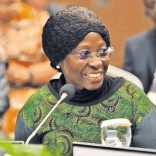
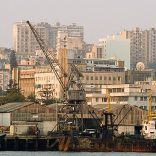
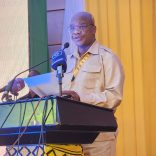
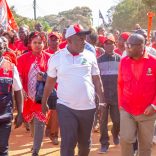
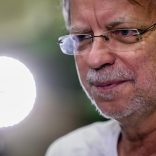
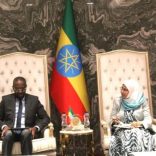




Leave a Reply
Be the First to Comment!
You must be logged in to post a comment.
You must be logged in to post a comment.